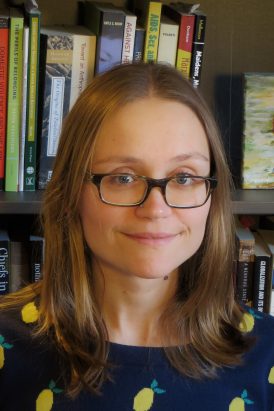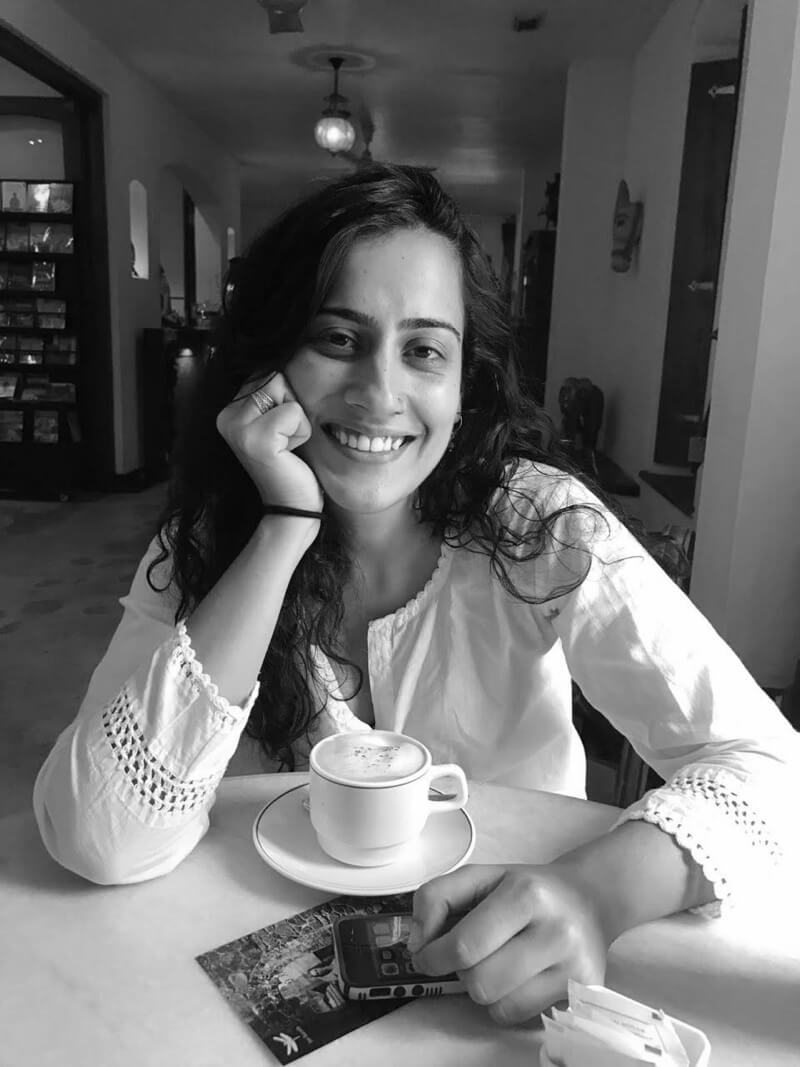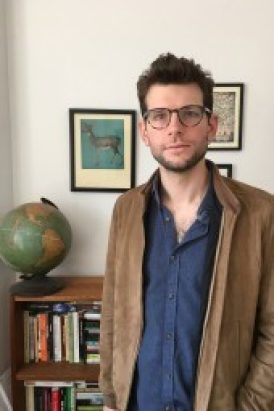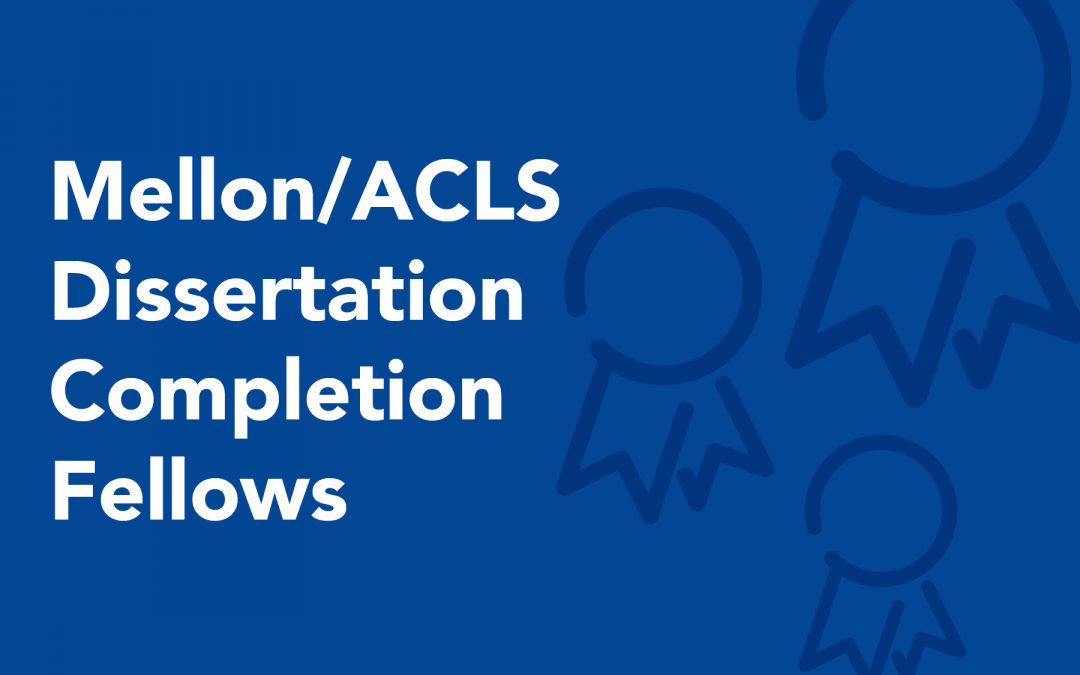Rackham students Sonia Rupcic, Nishita Trisal, and Daniel Williford were selected by the American Council of Learned Societies (ACLS) to receive 2019 Mellon/ACLS Dissertation Completion Fellowships. The 67 fellows, who hail from 42 U.S. universities, comprise one of the most institutionally diverse cohorts in the history of this fellowship. They were selected from a pool of more than 1,000 applicants through multiple stages of peer review. Now in its thirteenth year, the fellowship program offers promising graduate students a year of funding so that they can focus their attention on completing projects that form the foundations of their scholarly careers.
“The innovative research undertaken by our Mellon/ACLS Dissertation Completion Fellows represents the future of scholarship in the humanities and social sciences,” said ACLS program officer Valerie Popp. “The fellows’ work spans a broad range of time periods, geographic regions, and disciplines, including philosophy, literature, gender studies, music, history, and sociology. Amid such diverse research topics, several notable themes emerged this year, including the study of carceral states; the exploration of connections among culture, politics, and ecological change; and a focus on labor in communities around the world.”
The fellowship provides a $30,000 stipend and up to $8,000 in research funds and university fees to advanced graduate students in their final year of dissertation writing. The program, which is made possible by a grant from The Andrew W. Mellon Foundation, also includes a faculty-led academic job market seminar, hosted by ACLS, to further prepare fellows for their postgraduate careers.
The fellows and their projects are listed below:

Sonia Rupcic
Anthropology
Righting Sexual Wrongs? Personhood, Intent, and Sex in a Former South African Homeland
In post-apartheid South Africa, justice is pursued in a variety of forums. This is especially the case with sexual harm, which is historically dealt with in a number of ways. From courtrooms to chiefs’ tribunals, church services to university grievance hearings, living rooms to hair salons, this project describes how survivors and their loved ones seek justice inside and outside of courtrooms. By following complaints of unwanted sex, this study argues that material and discursive practices of redress shape indeterminate experiences of undesirable sex into recognizable categories of transgression. The project finds that categories of harm arise from different notions of normative sex, intentionality, and personhood that crosscut sites of redress. This study opens new inquiries into the conception of legal pluralism while also answering a wider call for empirically grounded research on the perils and potentials of righting sexual wrongs by way of criminal prosecution.

Nishita Trisal
Anthropology
Banking on Uncertainty: Debt, Default, and Violence in Indian-Administered Kashmir
“Banking on Uncertainty” examines the everyday life of banking and finance in politically volatile conditions. Based on 22 months of ethnographic and archival research conducted at a large bank in Indian-administered Kashmir in the wake of the region’s 2016 uprising, the dissertation tracks the technical and routine work of bankers as they labored amidst continuous strikes and curfews. It also follows the bank’s customers, who struggled to repay and renegotiate their debts during a time of ongoing uncertainty. Moving between the spaces of the bank branch, the corporate headquarters, the marketplace, the shopfront, and the home, “Banking on Uncertainty” probes the making of a local conflict economy, the adjudication of credit and debt, and the negotiation of economic life in projects of self-determination and sovereignty.

Daniel Williford
History
Concrete Futures: Technologies of Urban Crisis in Colonial and Postcolonial Morocco
This project explores the link between colonial concepts of urban crisis and the socio-technical work of remaking Morocco’s urban housing and infrastructures by tracing the movements of construction technologies through different regulatory systems, ecological relationships, and regimes of value. During the French Protectorate in Morocco and the country’s postcolonial transition, experts, officials, and urban residents developed a series of crisis technologies as solutions to problems of housing, public health, unemployment, and popular unrest. These crisis technologies included materials such as cinder blocks, forms of worksite organization such as housing cooperatives, and financial mechanisms such as small, low-interest loans. By examining the final decades of the Protectorate and the process of decolonization, this project argues that crisis technologies of construction, demolition, and financialization remade relations between states and subjects, bodies and environments, and labor and capital in Morocco.
For the full list of Mellon/ACLS Dissertation Completion Fellows, please visit the American Council of Learned Societies.

